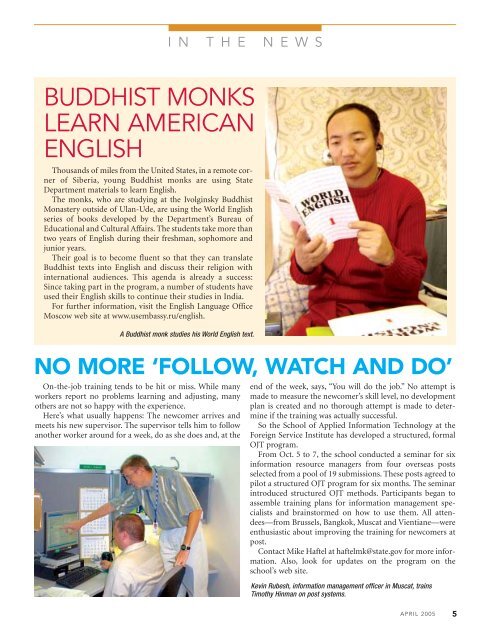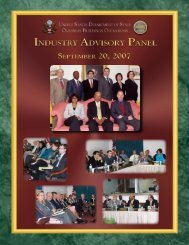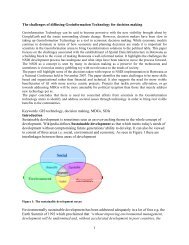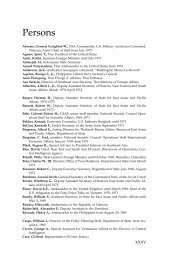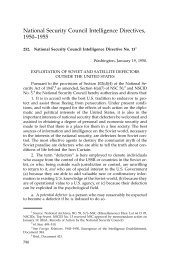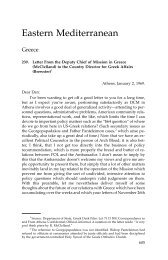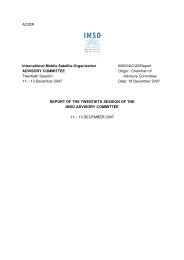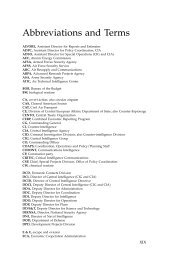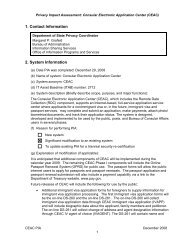about RNet - US Department of State
about RNet - US Department of State
about RNet - US Department of State
Create successful ePaper yourself
Turn your PDF publications into a flip-book with our unique Google optimized e-Paper software.
IN THE NEWS<br />
BUDDHIST MONKS<br />
LEARN AMERICAN<br />
ENGLISH<br />
Thousands <strong>of</strong> miles from the United <strong>State</strong>s, in a remote corner<br />
<strong>of</strong> Siberia, young Buddhist monks are using <strong>State</strong><br />
<strong>Department</strong> materials to learn English.<br />
The monks, who are studying at the Ivolginsky Buddhist<br />
Monastery outside <strong>of</strong> Ulan-Ude, are using the World English<br />
series <strong>of</strong> books developed by the <strong>Department</strong>’s Bureau <strong>of</strong><br />
Educational and Cultural Affairs. The students take more than<br />
two years <strong>of</strong> English during their freshman, sophomore and<br />
junior years.<br />
Their goal is to become fluent so that they can translate<br />
Buddhist texts into English and discuss their religion with<br />
international audiences. This agenda is already a success:<br />
Since taking part in the program, a number <strong>of</strong> students have<br />
used their English skills to continue their studies in India.<br />
For further information, visit the English Language Office<br />
Moscow web site at www.usembassy.ru/english.<br />
A Buddhist monk studies his World English text.<br />
NO MORE ‘FOLLOW, WATCH AND DO’<br />
On-the-job training tends to be hit or miss. While many<br />
workers report no problems learning and adjusting, many<br />
others are not so happy with the experience.<br />
Here’s what usually happens: The newcomer arrives and<br />
meets his new supervisor. The supervisor tells him to follow<br />
another worker around for a week, do as she does and, at the<br />
end <strong>of</strong> the week, says, “You will do the job.” No attempt is<br />
made to measure the newcomer’s skill level, no development<br />
plan is created and no thorough attempt is made to determine<br />
if the training was actually successful.<br />
So the School <strong>of</strong> Applied Information Technology at the<br />
Foreign Service Institute has developed a structured, formal<br />
OJT program.<br />
From Oct. 5 to 7, the school conducted a seminar for six<br />
information resource managers from four overseas posts<br />
selected from a pool <strong>of</strong> 19 submissions. These posts agreed to<br />
pilot a structured OJT program for six months. The seminar<br />
introduced structured OJT methods. Participants began to<br />
assemble training plans for information management specialists<br />
and brainstormed on how to use them. All attendees—from<br />
Brussels, Bangkok, Muscat and Vientiane—were<br />
enthusiastic <strong>about</strong> improving the training for newcomers at<br />
post.<br />
Contact Mike Haftel at haftelmk@state.gov for more information.<br />
Also, look for updates on the program on the<br />
school’s web site.<br />
Kevin Rubesh, information management <strong>of</strong>ficer in Muscat, trains<br />
Timothy Hinman on post systems.<br />
APRIL 2005<br />
5


